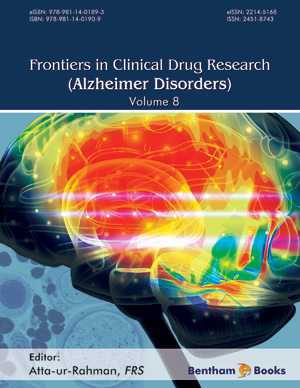Abstract
Psychosis is a common and difficult to treat symptom in Alzheimer’s disease (AD) patients. For the treatment of psychosis symptom and disruptive behaviors in AD patients, antipsychotics (APs) have been recommended. In this chapter, we reviewed clinical studies with AD patients who were treated by either firstor second-generation antipsychotics (FGAs or SGAs). FGAs showed overall disappointing results in elderly dementia patients, while adverse events occurred frequently, especially motor side effects, sedation, and cognitive impairment. SGAs offer an advance for the management of aggression and psychosis in the context of dementia. Although some of previous studies reported higher mortality in AD patients treated with SGAs, the others described no risks of mortality, even protective effects of them in AD patients. Preclinical studies indicate that early, low-dose and long-term administration of some SGAs may improve behavioral symptoms in various animal models of AD while attenuating pathological changes in the brain. The protective effects are achieved through inhibiting the pathological processes of oxidative stress and neuroinflammation of AD, in addition to the neurotrophic action of SGAs. All these protective actions can be hardly explained by the differential affinities of SGAs to multiple neurotransmitter receptors in the brain. Further studies are required to elucidate the molecular basis of these actions.
Keywords: Alzheimer’s Disease, Antipstchotics, Anti-Inflammation, Antioxidatant, Behavioral, Cognitive Impairment, Mortality, Neuroprotection, Psychiatric Disturbances.






















